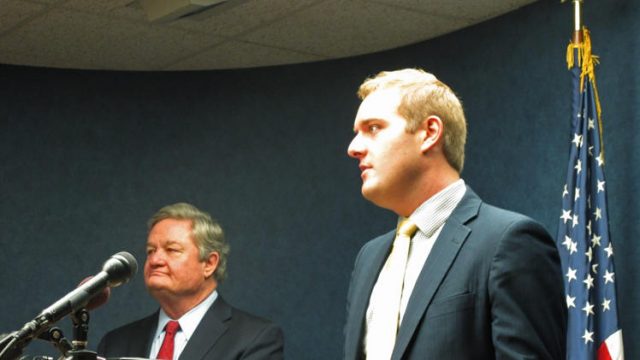North Dakota Seems Headed For Worst Of All Possible Outcomes On Property Taxes

Remember when North Dakotans shot down a ballot measure to abolish property taxes in 2012, buying into the “keep it local” argument put forward by a well-funded coalition of special interest groups and local government lobbyists operating under the banner of Keep It Local ND? Citizens were afraid of replacing local property tax revenues with state appropriations given that the Legislature might not be so responsive to local needs.
That argument was so compelling more than 75 percent of North Dakotans voted against eliminating the property tax.
Ironically, since then our state’s leaders – including Governor Jack Dalrymple and the Republican majority in the Legislature – has continued to address property tax “relief” by transferring huge amounts of local appropriations to the state budget. During the 2013 legislative session Dalrymple proposed, and the Legislature approved, $853 million in property tax buy downs including $653 million in shifted school funding (from local budgets to the state budget) and a $200 million, one-time buy down.
Now, since he’s on the ballot for the first time, Dalrymple has allowed his appointed Tax Commissioner Ryan Rauschenberger to announce his property tax scheme for the coming Legislative session, and it’s more buy downs. This time $1.36 billion worth, or about $500 million more than last session.
“The proposal would give owners of a $200,000 home an average of $2,000 in annual tax savings,” writes the Bismarck Tribne in an approving editorial.
What amazes me is that nobody points out the obvious hypocrisy in these ever-increasing state buy-downs of local taxes. In 2012 North Dakota voters cast their ballots to, you know, keep it local. How is the state buying up local spending keeping it local?
It’s not.
What Dalrymple, Rauschenberger and other proponents of these property tax buy downs are doing is good short-term politics. As long as the state budget is overflowing with revenue surpluses it’s easy to “solve” local property tax problems by having the state buy them up. You just hide the spending in the state’s revenue surpluses and call it “tax relief.” And in the short term, property owners will see their taxes go down, because the local spending burden will be disappearing into the surplus of taxes individuals and businesses are paying into state coffers.
But this is poor long-term policy.
The state won’t have soaring revenues forever. Eventually, those revenue gains are going to plateau, and perhaps even decline. What we’ll be left with then are huge new obligations to local governments in the state budget. Lawmakers will either have to keep funding these local “property tax relief” obligations, putting upward pressure on state-level revenue streams like the sales/income taxes, or stop funding them.
Which shoves all that accumulated burden back onto property owners who would no doubt be looking at hefty increases.
The 2012 ballot measure to eliminate property taxes would have also moved the burden for a lot of local spending to the state budget. But it would have had the benefit of eliminating the property tax. As it stands now, what we’re going to end up with is a shift in huge amounts of local spending to the state while keeping the property tax in place.
That’s the worst possible outcome. What’s more, if the executive branch is going to be pushing the Legislature to continue pouring money into this property tax shift, you can expect they’ll be hostile to other efforts for actual tax relief.
Like, say, eliminating the income tax which many lawmakers – including some in leadership positions – tell me is their priority.




